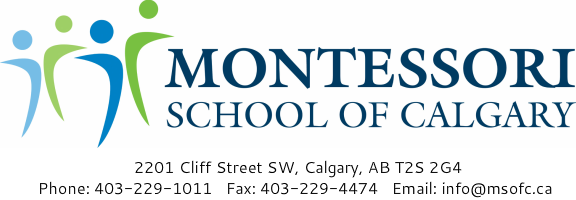Half Day (Casa) - 3 and 4 Year Olds
Hours: 8:30am-11:30am
Tuition: $8,440
Age (First Year): Normally, turning 3 years old by Dec 31 Age (Second Year): Turning 4 years old by Dec 31
Tuition: $8,440
Age (First Year): Normally, turning 3 years old by Dec 31 Age (Second Year): Turning 4 years old by Dec 31
During the first years of the Montessori Primary program (Casa dei Bambini), the child is learning to adapt to the new environment. This is achieved through working with the practical life and early sensorial activities. Through these activities they learn self discipline, independence and a love for learning. Children enjoy many early language activities, focusing on enrichment of vocabulary and phonetic awareness. Music, art and nature are also an integral part of the curriculum.
When the child moves into the second year of the program, they continue to build on the foundation set in the first year. While still working in all areas of the classroom, language and math activities now begin to take an even greater role. The child begins to recognize many letters of the alphabet and starts to build words using our movable alphabet. Children become interested in writing letters, first on the chalkboard and later on paper. In math they are introduced to activities that help gain an understanding of foundational numeracy skills.
When the child moves into the second year of the program, they continue to build on the foundation set in the first year. While still working in all areas of the classroom, language and math activities now begin to take an even greater role. The child begins to recognize many letters of the alphabet and starts to build words using our movable alphabet. Children become interested in writing letters, first on the chalkboard and later on paper. In math they are introduced to activities that help gain an understanding of foundational numeracy skills.
Full Day (Bambini) & Care - 3 and 4 Year Olds
Hours: 7:45am-5:30pm (including instructional hours 8:30am-3:30pm and optional before and after school care) Tuition: $14,550
Age (First Year): Normally, turning 3 years old by Dec 31 Age (Second Year): Turning 4 years old by Dec 31
Age (First Year): Normally, turning 3 years old by Dec 31 Age (Second Year): Turning 4 years old by Dec 31
3 and 4 year old children are also eligible to enroll in the Full Day (Bambini) & Care program. In the Bambini program, children participate in lunch time, recess, and an afternoon work cycle. Space for quiet rest is provided for 3 year old children who require it in the afternoon. All children enrolling must register in the full five days per week.
This child care service meets the requirements permitting the school to issue a tax receipt for the purpose of claiming a child care expense deduction when filing with the CRA.
This child care service meets the requirements permitting the school to issue a tax receipt for the purpose of claiming a child care expense deduction when filing with the CRA.
Full Day Instruction Only - 4 Year Olds
Hours: 8:30am-3:30pm
Tuition: $11,096
Age: Turning 4 years old by Dec 31
Tuition: $11,096
Age: Turning 4 years old by Dec 31
Extended Day (Kindergarten)
Hours: 8:30am-3:30pm
Tuition: $11,096
Age: Turning 5 years old by Dec 31
Tuition: $11,096
Age: Turning 5 years old by Dec 31
The third year is an extended day of the Montessori Primary (Casa dei Bambini) curriculum and is the capstone year of the 3 year program. It is very important for the 5 year old child and it is this year that a traditional learning system refers to as Kindergarten. This is the year when children come to school for the whole day. Socially and emotionally they are growing and begin to take on roles as leaders both inside and outside of the classroom. The Extended Day students assist in mentoring the younger children and are active in helping to maintain the classroom order.
It is in this third and final year of the Montessori Primary program that foundational work completed over the past two years is evident with many children “exploding” into reading and writing. In mathematics children are introduced to the four mathematical operations: addition, subtraction, multiplication and division. They work through a series of activities guiding them from the concrete to the more abstract. Geography, zoology, botany, music and art all continue to play a significant role in the children’s learning as they start to move beyond themselves and their immediate environment to the world at large.
It is in this third and final year of the Montessori Primary program that foundational work completed over the past two years is evident with many children “exploding” into reading and writing. In mathematics children are introduced to the four mathematical operations: addition, subtraction, multiplication and division. They work through a series of activities guiding them from the concrete to the more abstract. Geography, zoology, botany, music and art all continue to play a significant role in the children’s learning as they start to move beyond themselves and their immediate environment to the world at large.
Extended Day (Kindergarten) & Care
Hours: 7:45am-5:30pm (including instructional hours 8:30am-3:30pm and before and after school care)
Tuition: $14,250
Age: Turning 5 years old by Dec 31
Tuition: $14,250
Age: Turning 5 years old by Dec 31
